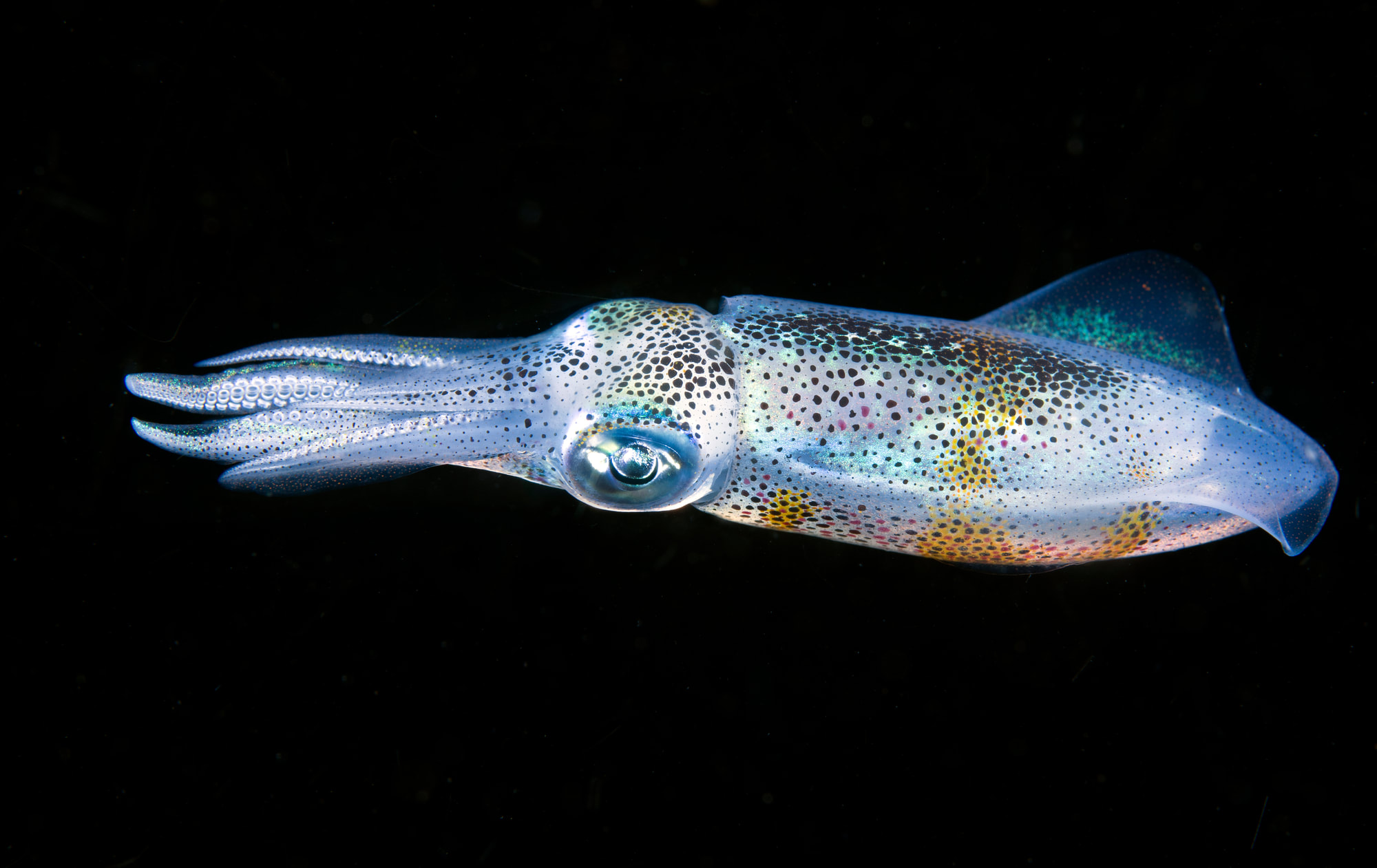The Resident Northern Red at Folly Cove
January 24, 2023
Folly Cove in Gloucester, Massachusetts is one of every local scuba
diver’s go-to dive sites on Cape Ann. Day or night, Folly Cove rarely
disappoints. There is a shore dive along the left side of the cove, a
shore dive along the right side of the cove and boat dive locations that
begin towards the mouth of the cove. On the left side of a shore dive,
divers explore pink granite formations loaded with life and sea
critters. There are frilled anemones, green urchins, longhorn sculpin,
rock gunnel and colorful sea stars. Certain times of the year divers
will see nudibranchs that aren’t commonly seen in Cape Ann during peak
dive season. Divers will often also spend time on the bottom sand as
there are moon snails, flounder, northern pipefish, northern puffers,
burrowing anemones and for the lucky diver there is a torpedo ray
sighting. During night dives, divers will often be entertained by
groupings of bobbing squid along the grooves of the sand.
But while divers explore Folly for so many reasons, most aren’t aware
there is a resident Northern Red Anemone on the left side of the cove
that has been in the same location for over 30 years.
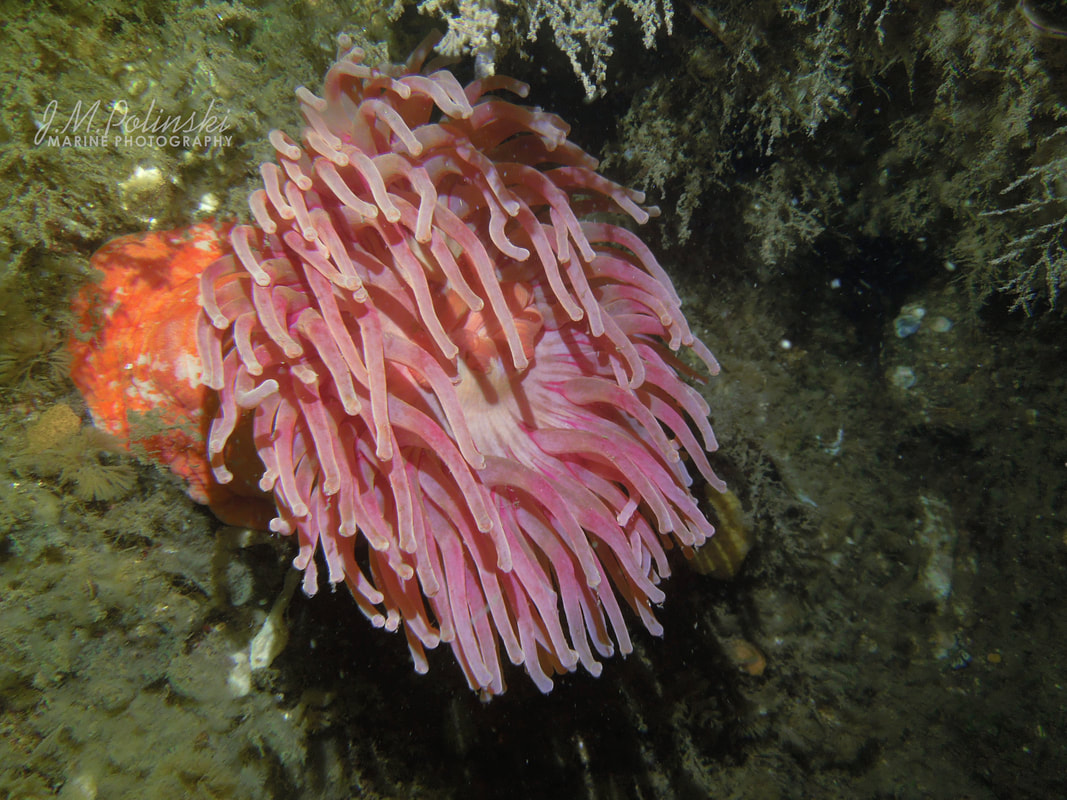
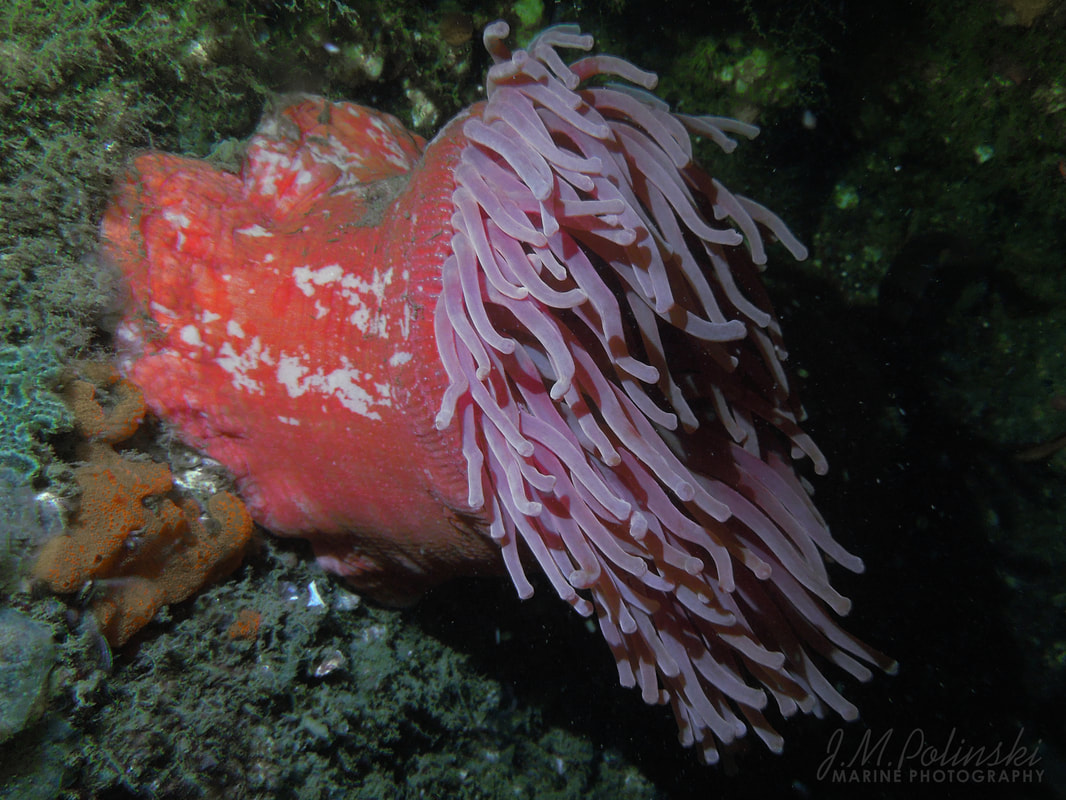
The scientific name for the Northern Red is urticina crassicornis, and the name Northern Red is used for multiple species found around the world. Sometimes divers feed it as they pass by, and many divers use it for a focal point for underwater photography. In addition to being alluring for its graceful movement and vibrant color, it is used as a navigational landmark at this site. “We started heading back after the red anemone…”
Finding it isn’t too difficult either.
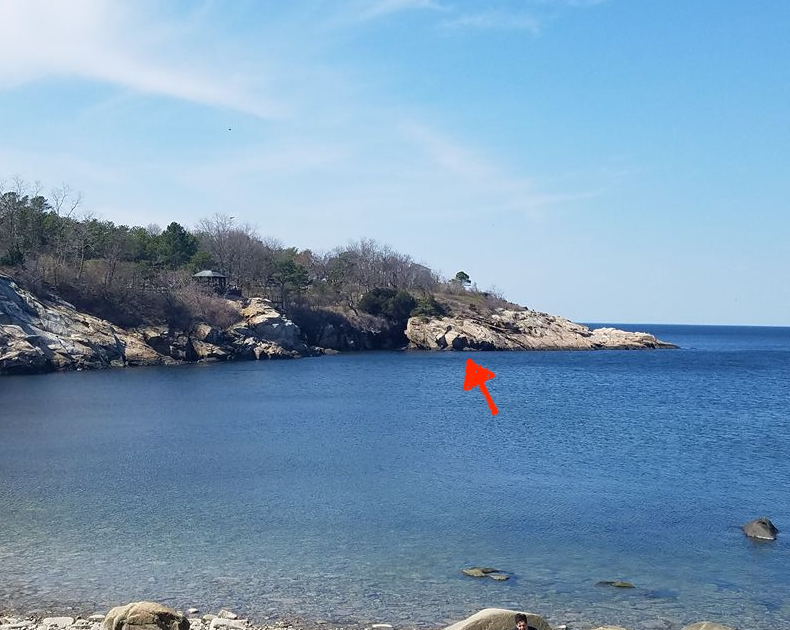
It’s at that location where I slowly ascend about 10 feet from the bottom so I’m about 20-25 feet from the surface depending on the tide height. From there you come across a couple back-to-back ledges, and it’s at the second ledge where a small mini cavern is home to the resident Red Anemone.
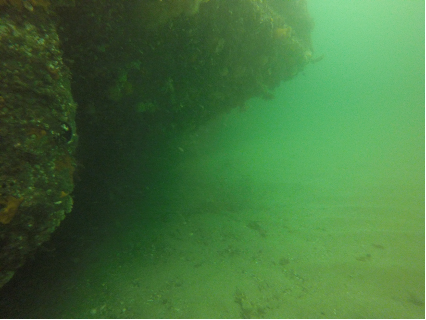
As for feeding it, as some divers do, green urchins seem to be a favorite. Closely related species are known to eat fish, and this resident doesn’t appear to pass up anything tasty caught within its tentacles. During a feeding divers can observe the tentacles moves prey toward its oral disc where it feeds. If the resident Red Anemone is closed, don’t bother as it’s just had a feeding.
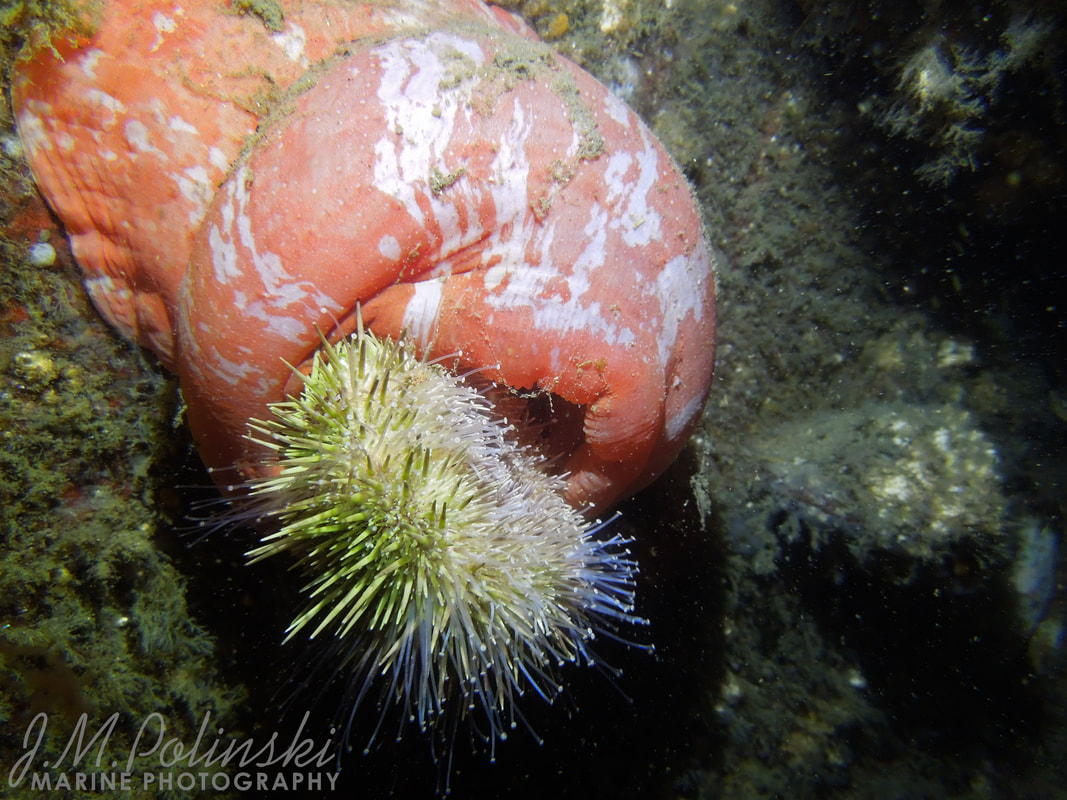
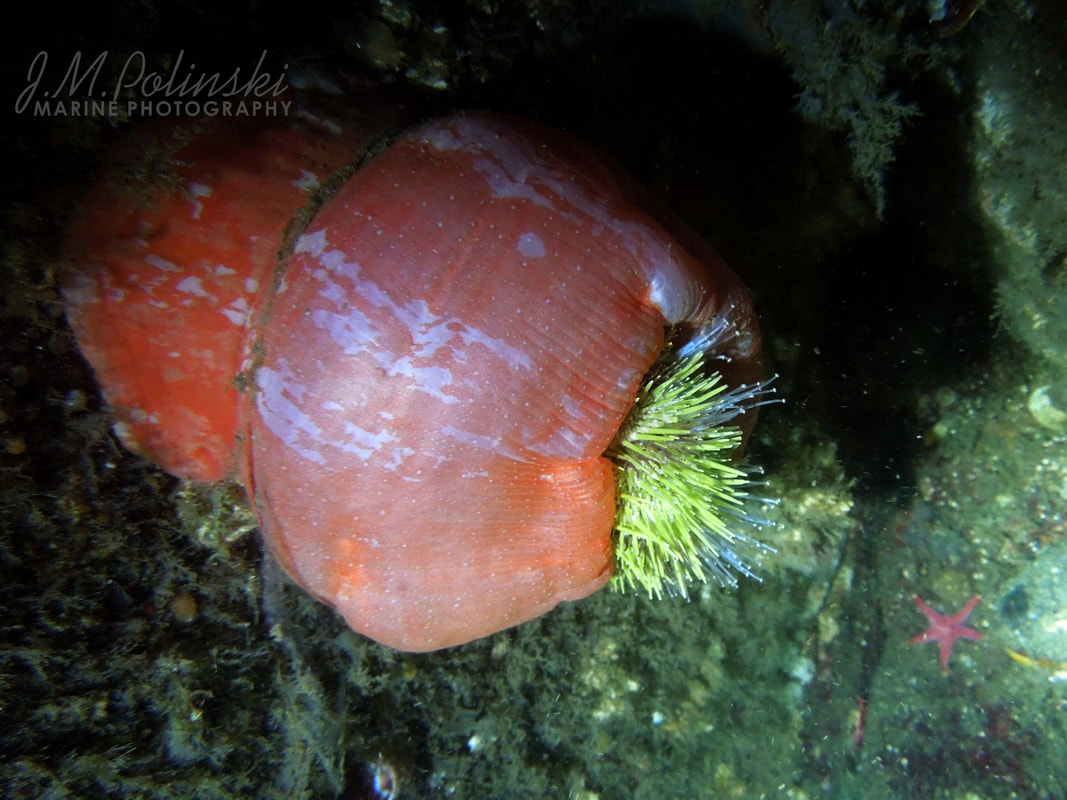
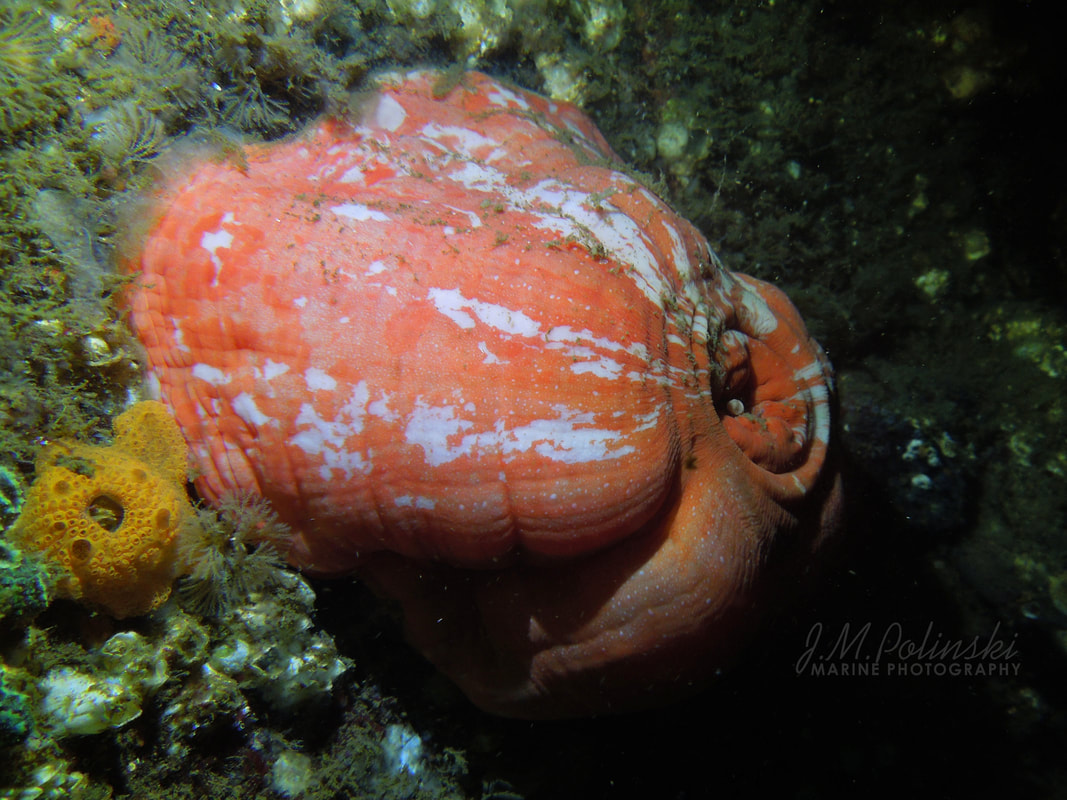
Seeing the Northern Red Anemone is a highlight of Folly Cove dives, especially when guiding new divers at the site. The lifespan of a Northern Red Anemone is about 60-80 years so there is no telling how long it’s lived there before I started diving Folly over 30 years ago, but I’d be interested if any divers encountered it before then!
Many thanks to Jennifer Polinski for the pictures. You can follow Jennifer's Marine Photography account on Instagram: @jmp_photograsea

